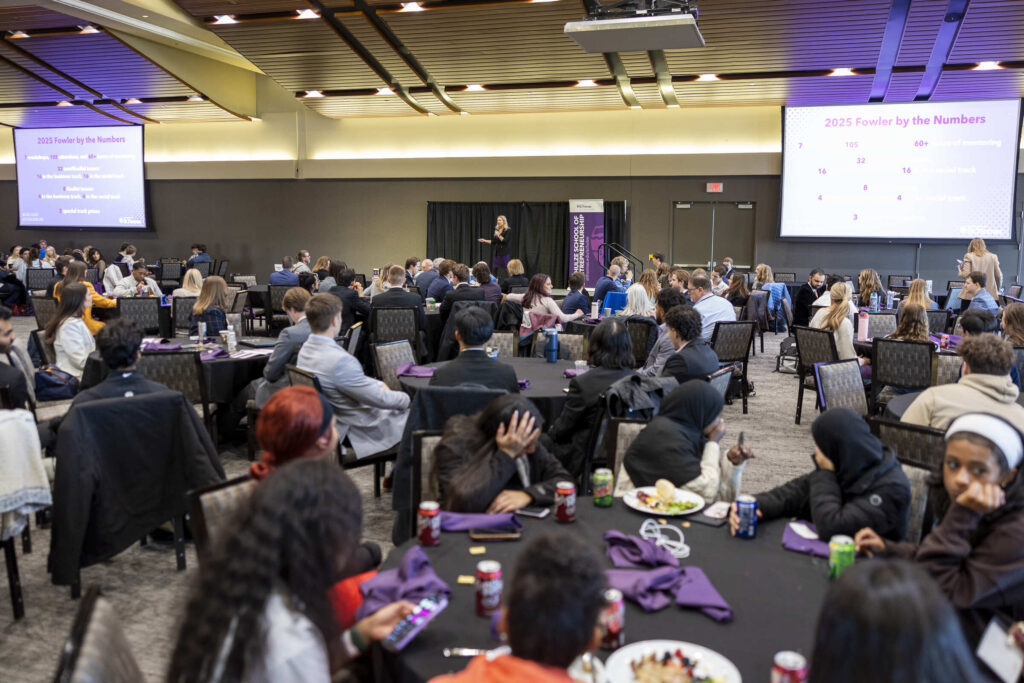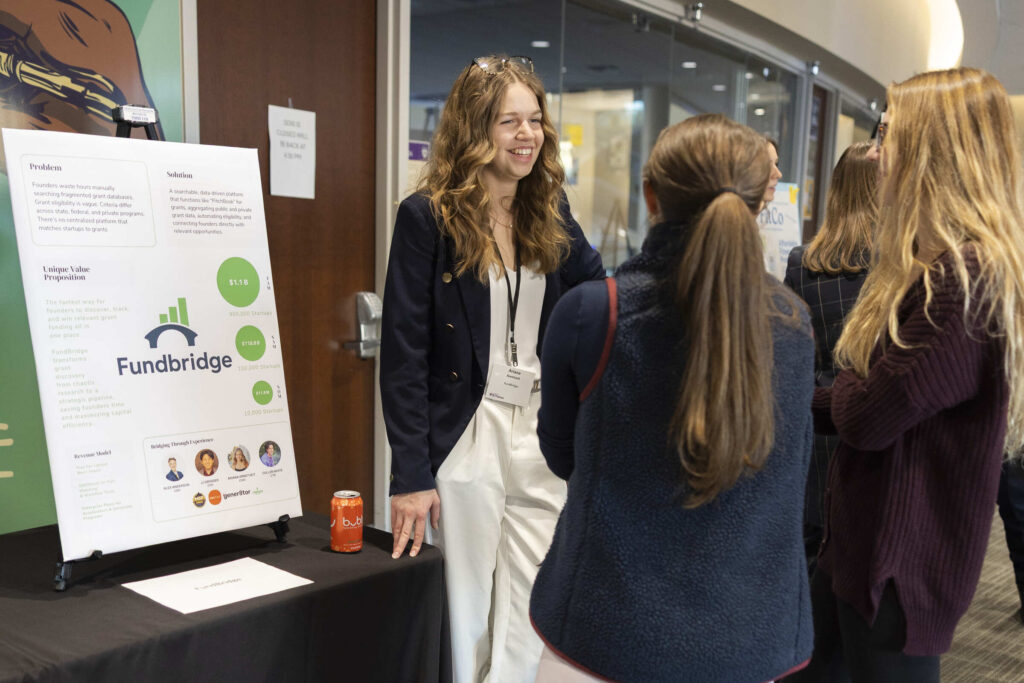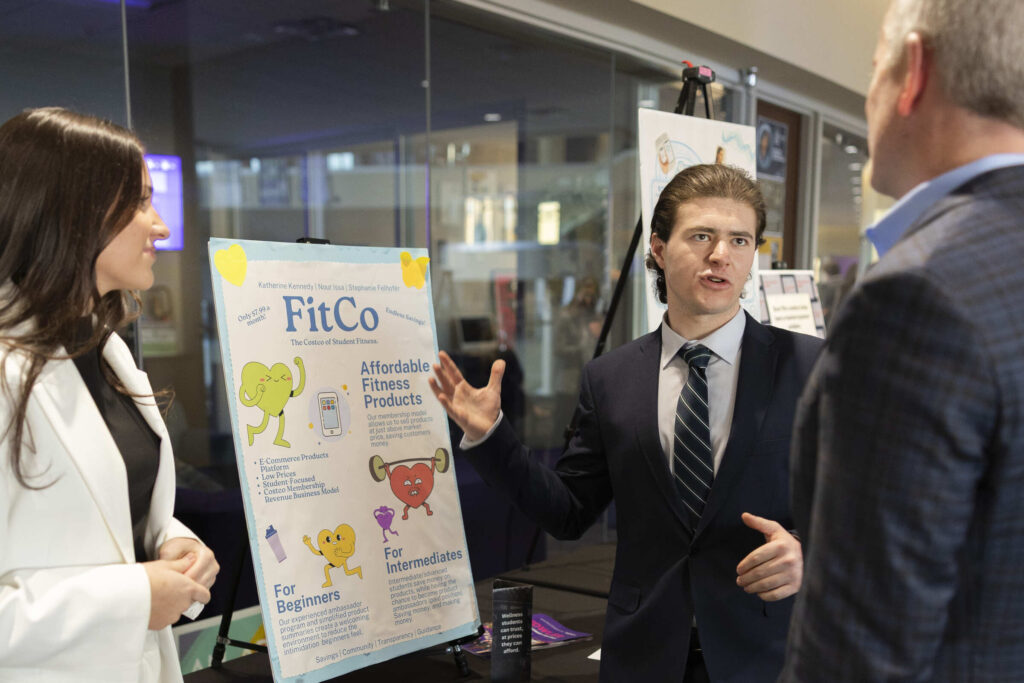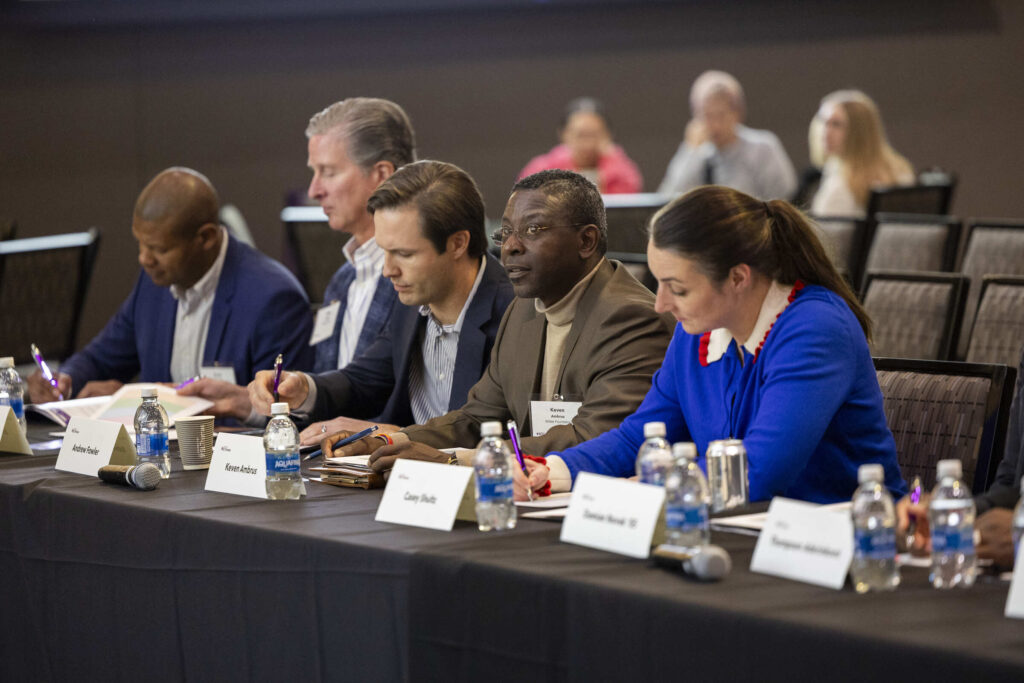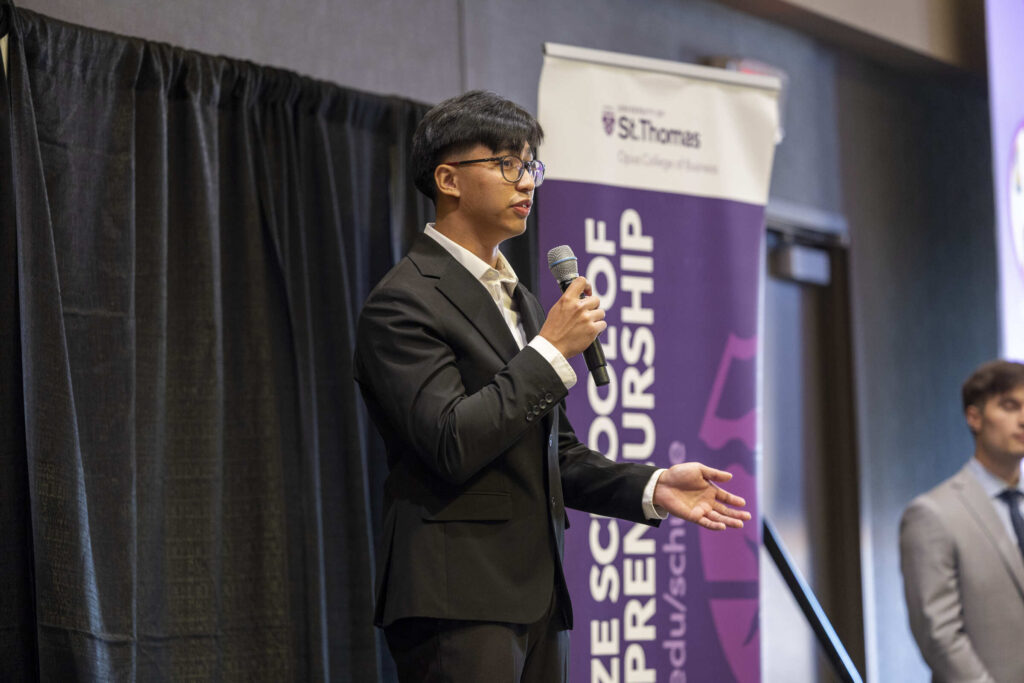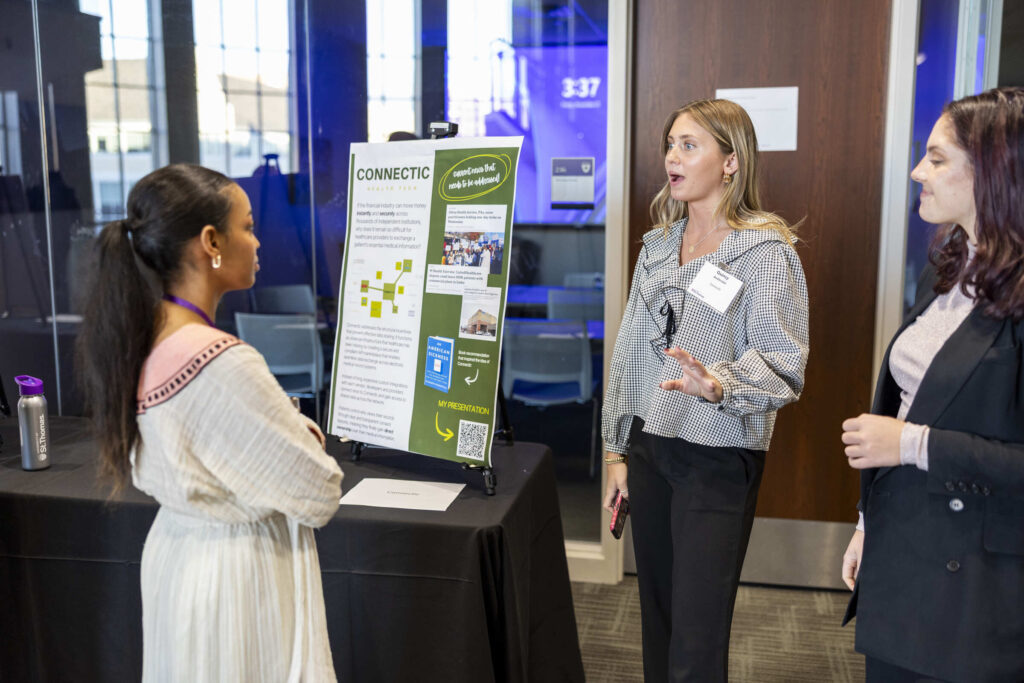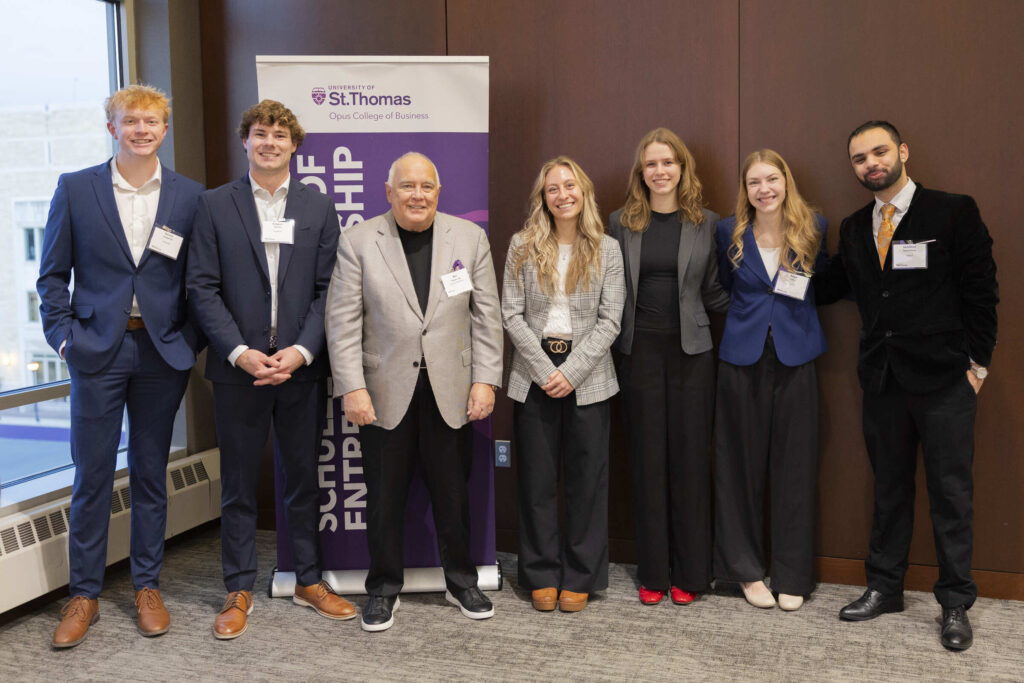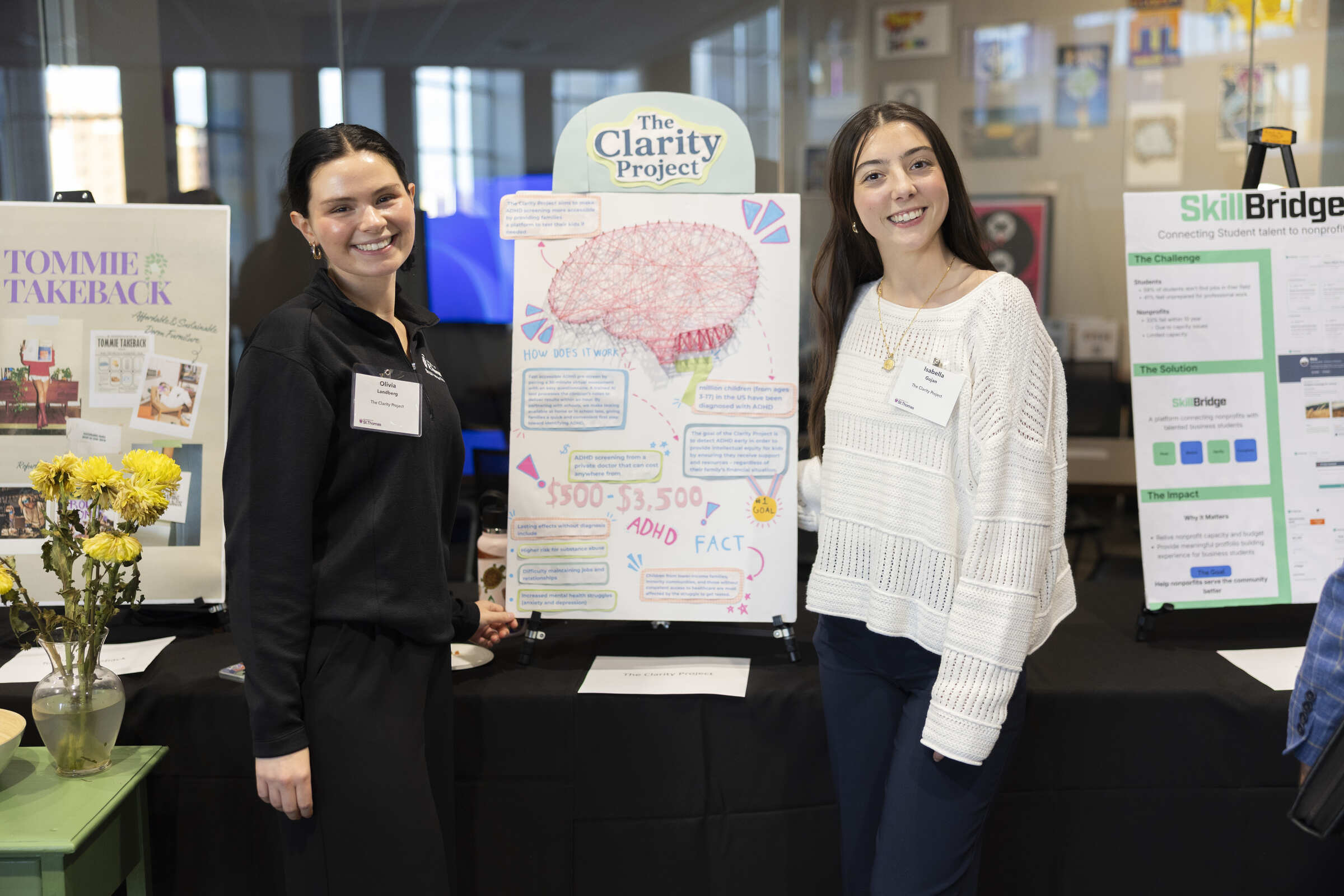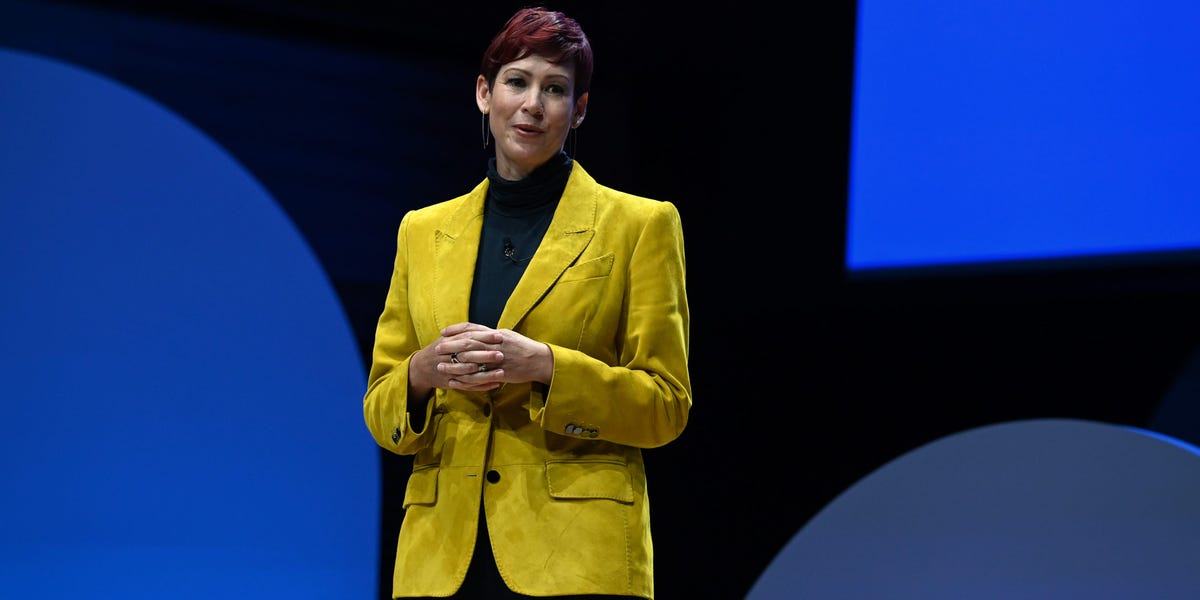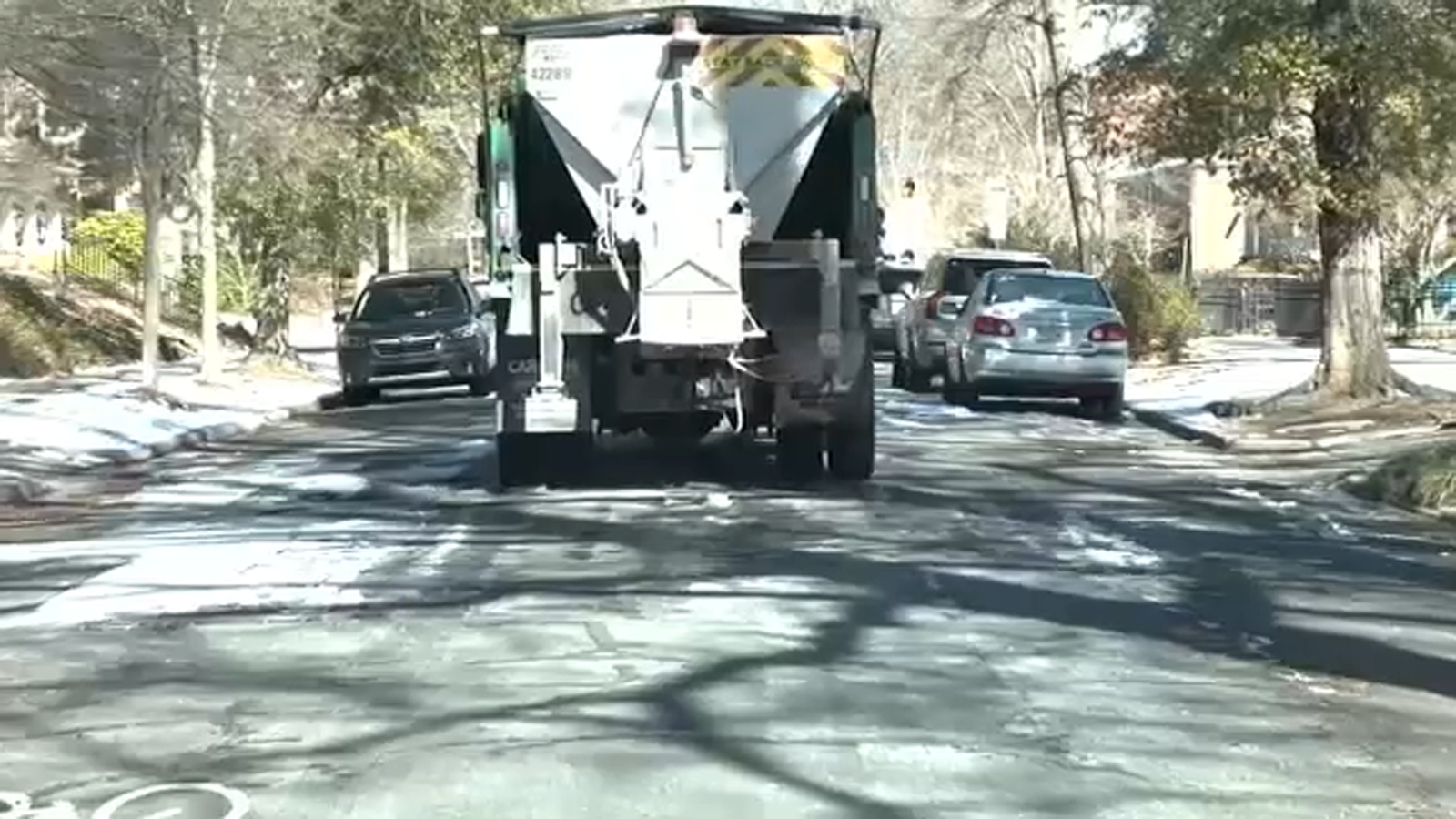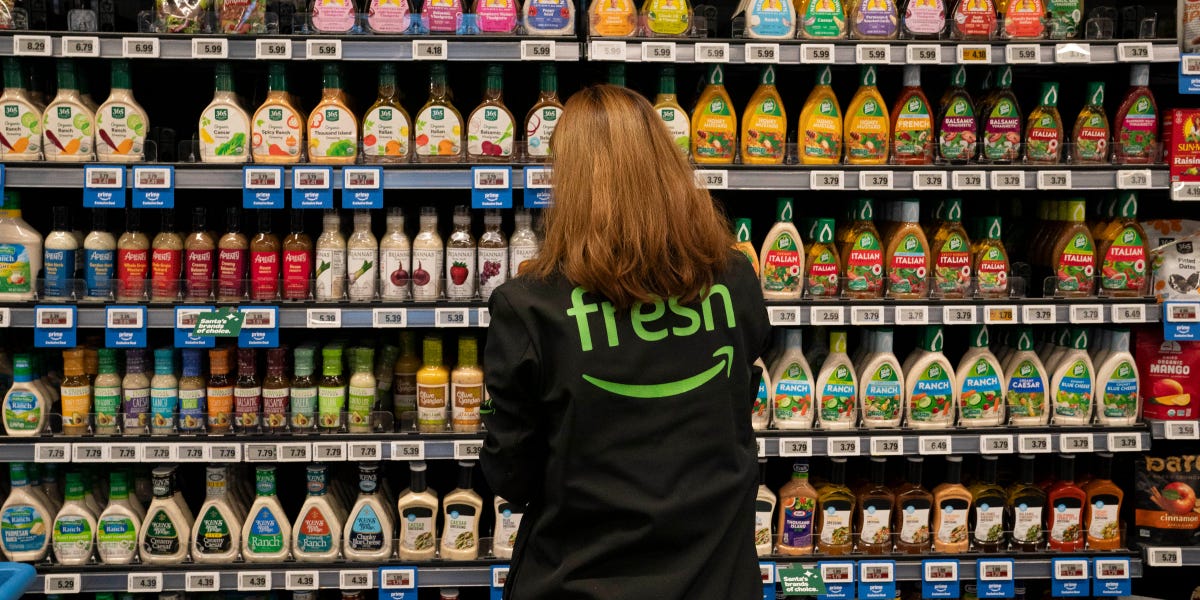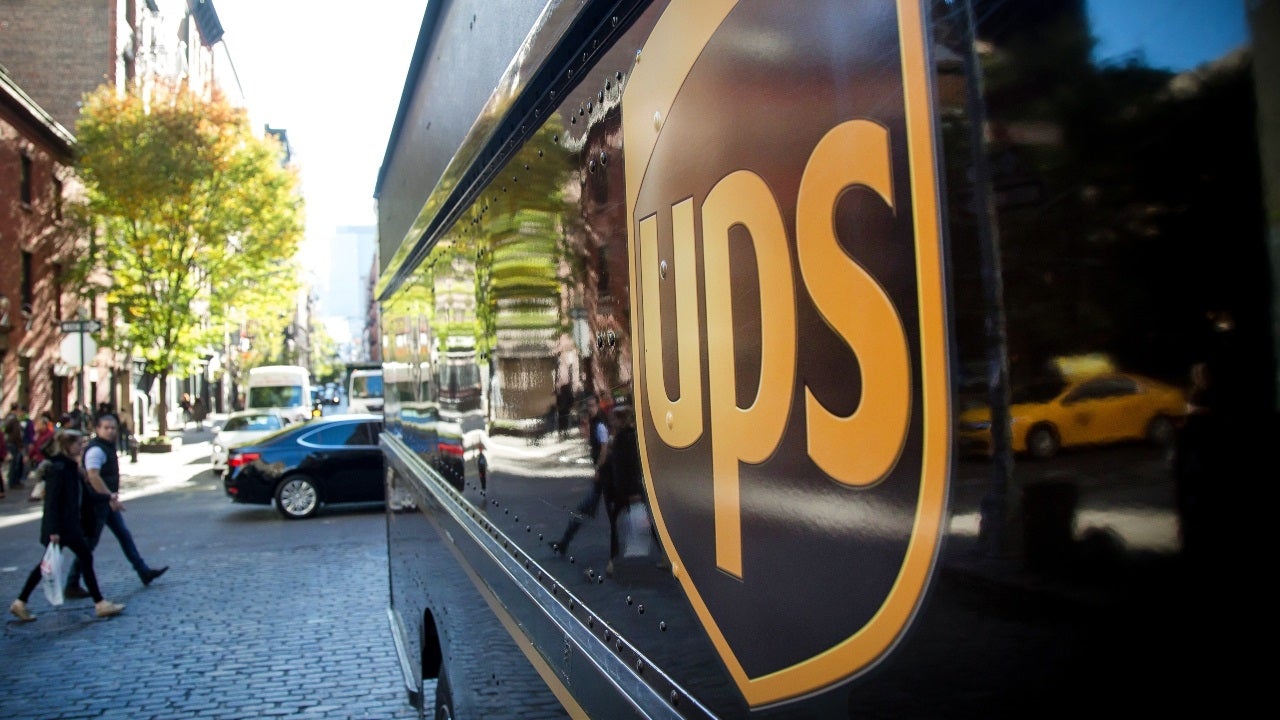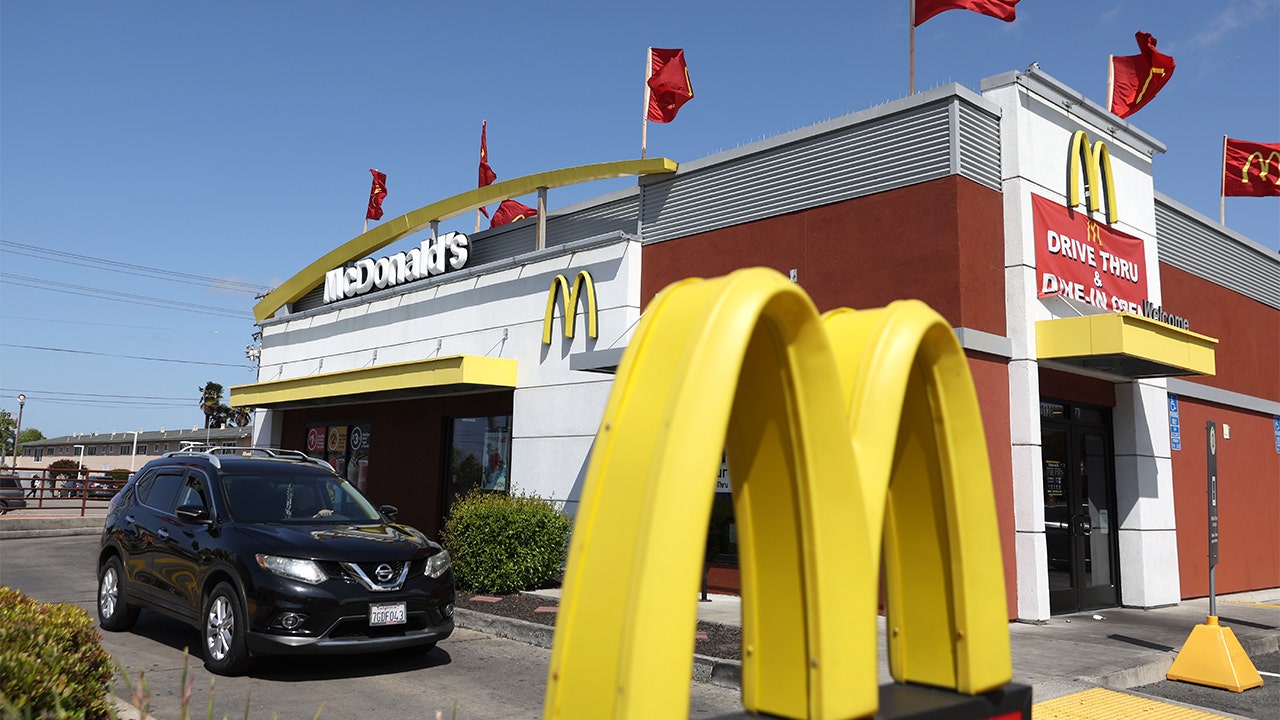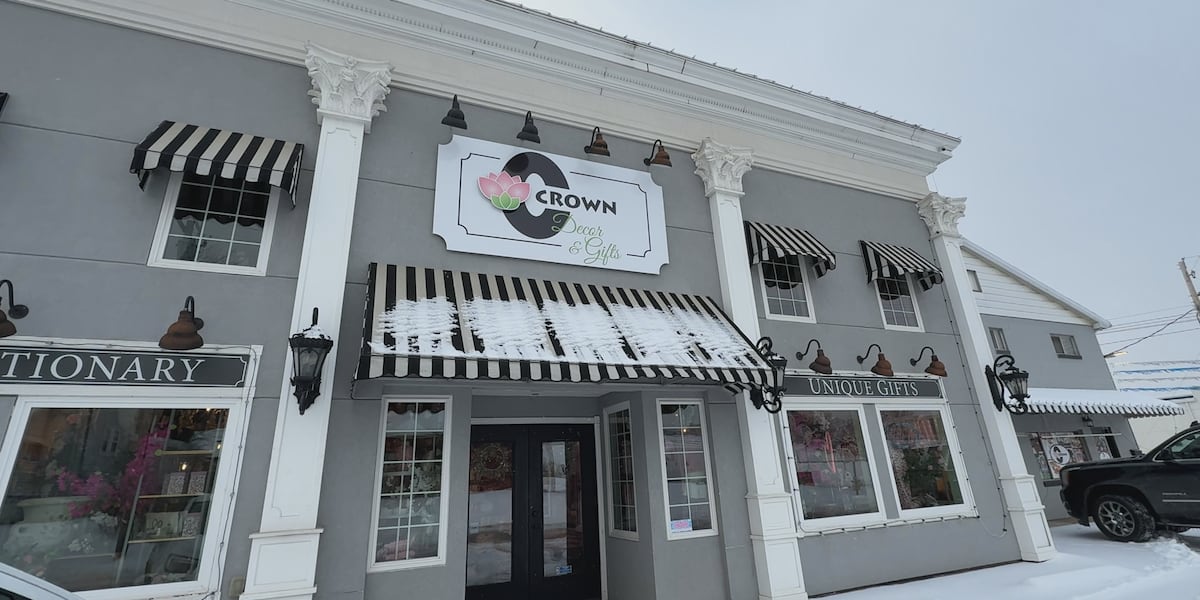When Xinsheng Tang ’26 MS looks at a municipal wastewater outfall pipe, he doesn’t see an endpoint; he sees possibility. Standing before a packed room of 63 judges, visitors and peers at the 17th annual Fowler Business Concept Challenge, he explained how cities could turn a constant, gravity-fed stream of wastewater into clean electricity.
“Cities spend billions of dollars every day to run wastewater treatment plants,” said Tang, who is pursuing a master’s in data science. “At the same time, they’re just flushing free energy away in the discharge pipe. We capture that.”
His invention, WOWER (Waste Outfall Water Energy Recovery System), places a compact turbine directly inside the outfall pipe to generate hydropower that cuts energy costs and carbon emissions.
Tang won the top prize of $15,000 in the Business Concept Track. WOWERS was just one of more than 100 innovative ideas submitted this year to the University of St. Thomas’ annual entrepreneurship competition, hosted by the Schulze School of Entrepreneurship. Students from 42 academic programs participated, with 32 teams advancing to the semifinal round.
The challenge invites students from any major to pitch solutions to real-world problems – everything from public health to creative arts to environmental sustainability.
The top prize in the Social Venture Track went to a concept that also focused on water. Conceived by entrepreneurship major Kaiya Daley ’29, Bloom is a solar-powered water monitoring device that tracks water quality in real time to support rapid contamination response.
“In the United States alone, one major chemical spill happens every other day. Many of these chemical spills go undetected,” Daley said. “Bloom quickly and efficiently detects chemical spills and alert environmental agencies when water quality changes.”
Daley and Tang were among the eight finalists who presented their concepts to panels of alumni, entrepreneurs and industry experts who evaluated the concepts on impact, scalability and market viability to determine the winning concepts.
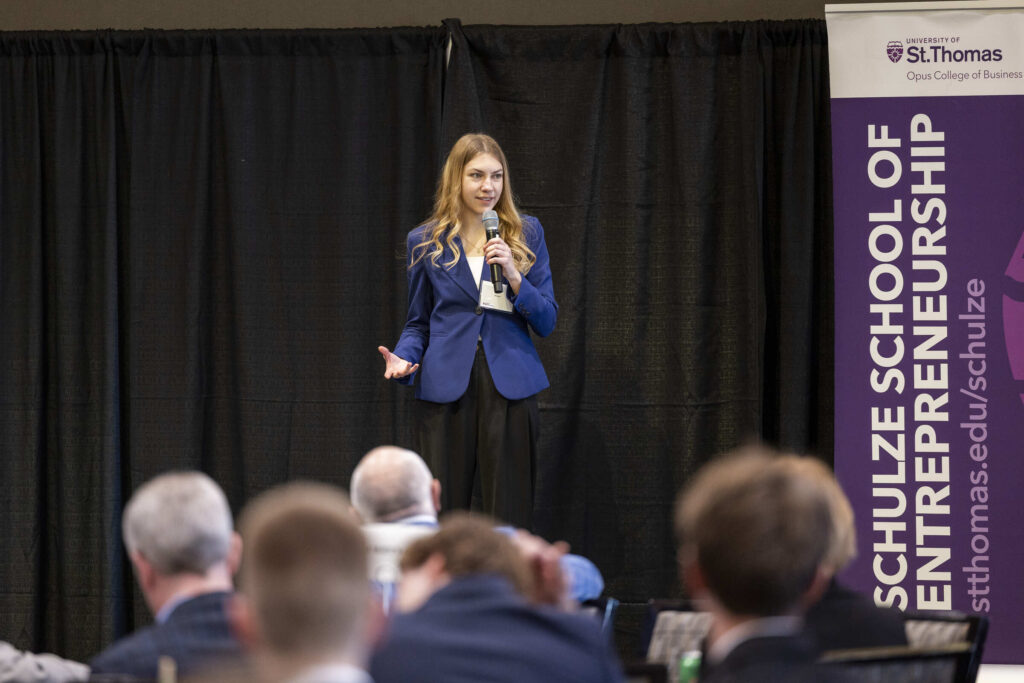
A showcase of purpose-driven entrepreneurship
“What sets the Fowler Business Concept Challenge apart is not just the variety of ideas, but the personal ambitions fueling them,” said Danielle Ailts Campeau, associate dean and Best Buy Chair at the Schulze School of Entrepreneurship. “Students from any discipline can bring forward the problems they care about most, and the Challenge equips them with the professional skills and confidence they need to carry those ideas into their careers and communities.”
That was certainly true for Grayson Spronk ’27, who took second place with GoDetail, a national franchise system designed to support mobile detailing operators, an idea he first developed five years ago.
“Of the one million individual operators in this industry, 52% go out of business within two years,” he said. “These operators have the talent. They need a system that helps them grow.”
GoDetail offers scheduling technology, customer-support tools, and fully equipped mobile units so independent operators can scale sustainably, unifying one of America’s most fragmented industries.
Carl Samuel de la Cruz ’26 MS, a mechanical engineering graduate student behind Healaga, described the urgency of addressing gout, a painful condition often ignored until it worsens.
“People ignore early signs because of stigma and because there’s no tool to help them act on it early,” he said.
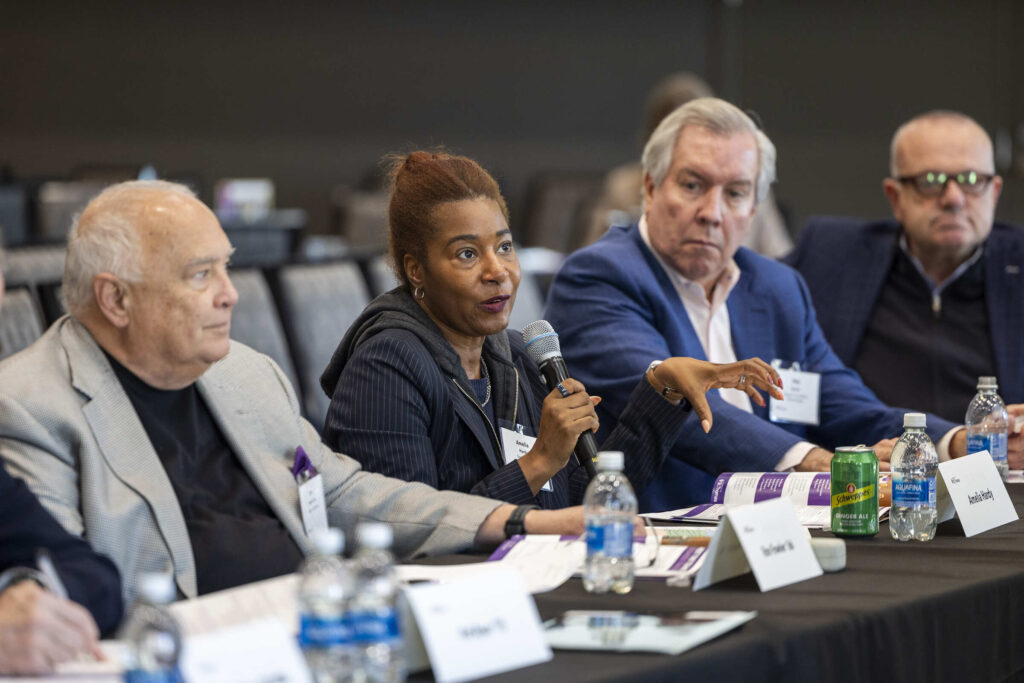
Healaga’s wearable device detects heat, swelling and stiffness, which are early indicators of a flare-up. It then delivers targeted heat and compression.
“The problem is real, the preventative window is real, and the need is deeply human,” Carl said.
Across pitches, it was clear that St. Thomas students weren’t just building businesses, they were designing solutions that meet real human needs.
Entrepreneurship across disciplines
The Fowler Business Concept Challenge highlights the strength of interdisciplinary learning at St. Thomas. This year’s ventures brought together students from data science, mechanical engineering, entrepreneurship, finance, neuroscience, environmental science, biochemistry and the creative arts.
Some students relied heavily on technical research; others used creative storytelling or business modeling. Teams blended these strengths, working across majors to prototype apps, build functional hardware, pilot renewable energy solutions, or test medical devices.
For the judges, this collaboration is what defines the Challenge.
Students “aren’t imagining abstract markets,” one judge said. “They’re responding to problems they’ve experienced firsthand.”
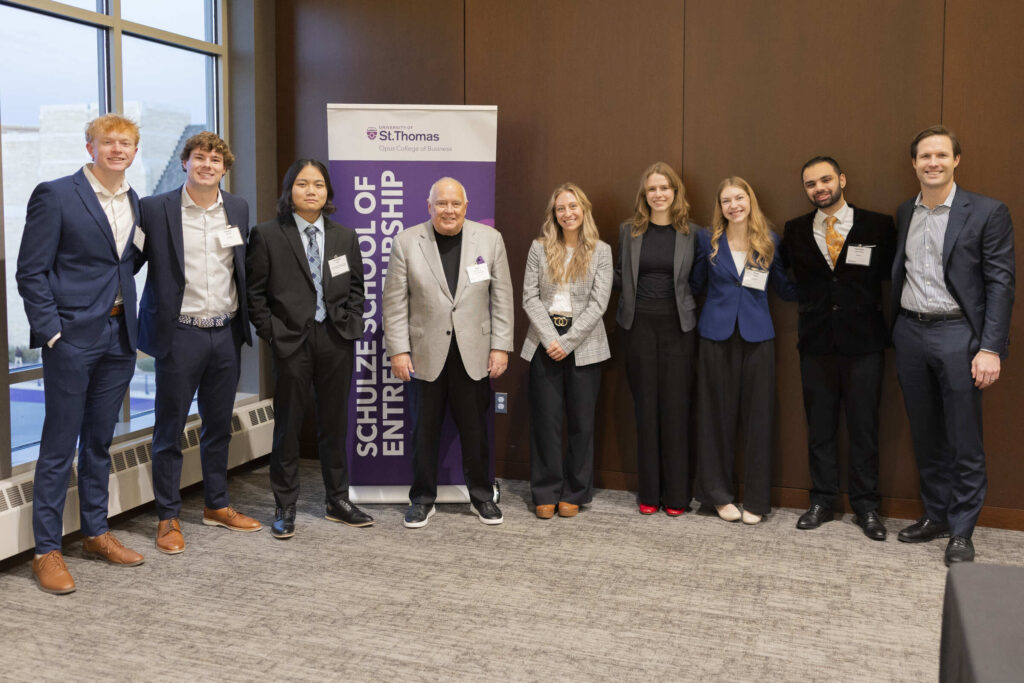
Here are the big winners for the 2025 Fowler Business Concept Challenge!
Business Concept Track:
Waste Outfall Water Energy Recovery System (WOWERS): A micro-hydropower solution that captures unused hydraulic energy from treated wastewater discharge. By installing a compact turbine at the outfall pipe, it converts constant, gravity-fed flow into clean electricity, lowering energy costs, reducing carbon emissions and supporting sustainable urban infrastructure.
GoDetail: A franchise system unifying the $18 billion detailing industry – one of the largest U.S. markets without a national leader. With fully equipped mobile units, advanced booking technology and a proven operating model, it offers entrepreneurs an accessible, high-margin path to build trusted detailing businesses nationwide. Grayson Spronk ’27, Entrepreneurship and Real Estate Studies
3rd place ($4,000)
Arthouse: A web platform that supports emerging filmmakers by providing professional feedback, peer reviews and weekly competitions designed to showcase new talent and bring visibility to an underserved creative market. Daniel Jungwirth ’29, Entrepreneurship
Aberuca AI: An AI-powered, plug-and-play home energy management system that automatically monitors, predicts and optimizes electricity use to lower costs and improve efficiency. It combines clean energy intelligence, automation and affordability in one simple solution for every household. Itamar Perez Ryan ’26, Biochemistry and Physics
Bloom: A compact, solar-powered water monitoring device that continuously tracks water quality and detects chemical spills in real time. It enables early detection of contamination, supports environmental safety and provides actionable data for rapid response. Kaiya Daley ’29, Entrepreneurship
Droplet: A technology that captures and purifies evaporated water produced by AI data center. Once the water is captured and purified, we put it back into the AI data centers creating a cycle which reduces water usage. Lauren Bauer ’25, Entrepreneurship; Madeline Bent ’26, Entrepreneurship
3rd place ($4,000)
Typhi Guard: A dual defender of both malaria and waterborne diseases. It is a two-compartment bottle with a leakproof design that filters water in one section and a detachable compartment on the side of the bottle specifically for the mosquito repellent.
Ruta’al: A simple way to save, send money and get small loans through local community stores. It gives workers without bank access or internet a safe and affordable way to manage their money and create a digital identity. Sambhav Lamichhane ’26, Data Analytics and Financial Management; Ruben Hapaki Lorenzo Quintana ’26, Mechanical Engineering
